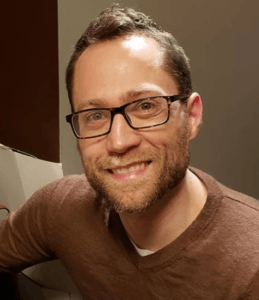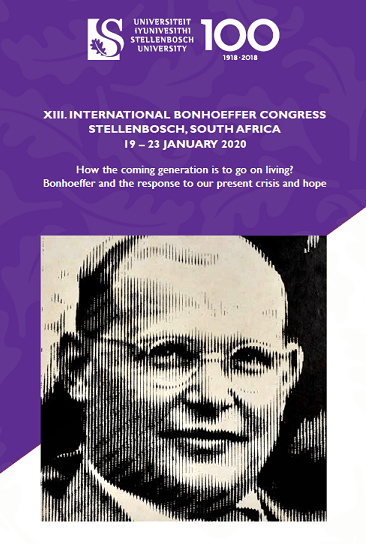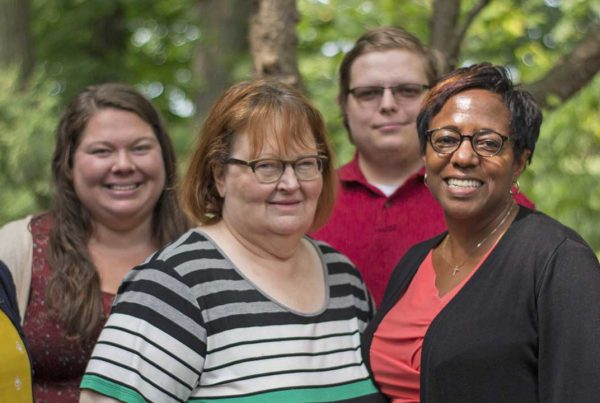 Kyle Trowbridge, MTS student, recently delivered a paper at the International Bonhoeffer Congress in Stellenbosch, South Africa. This was the 13th congress of its kind, which took place at Stellenbosch University from January 19-23. The theme of the conference was: “How is the coming generation to go on living? Bonhoeffer and the response to our present crisis and hope.”
Kyle Trowbridge, MTS student, recently delivered a paper at the International Bonhoeffer Congress in Stellenbosch, South Africa. This was the 13th congress of its kind, which took place at Stellenbosch University from January 19-23. The theme of the conference was: “How is the coming generation to go on living? Bonhoeffer and the response to our present crisis and hope.”
The Master of Theological Studies (MTS) is a rigorous yet flexible research degree that typically consists of two years of coursework, during which students take classes across the seminary curriculum as they hone their research interests under the guidance of a faculty advisor. The MTS culminates in a thesis project, which often takes the form of a long research paper.
After auditing a course at CTS on literature and theology, Trowbridge enrolled in the MTS program in 2018. He said that throughout his coursework, he has been especially grateful for the mentorship of Prof. Robert Saler and Prof. Helene Russell.
 Trowbridge explained that his research interests lie in modern Protestant theology, with special focus on figures like Dietrich Bonhoeffer. He is most attuned to the application of theology to ethics and politics. He explained that,
Trowbridge explained that his research interests lie in modern Protestant theology, with special focus on figures like Dietrich Bonhoeffer. He is most attuned to the application of theology to ethics and politics. He explained that,
If you think theological questions are porous to other disciplines, theologians – especially theologians – cannot shut themselves off from concerns in the broader world and academy. And so how does something like Bonhoeffer’s Christology help us see the world as a moral field? Can [Karl] Barth’s doctrine of God help us push back against divinizing political strongmen? How does [James] Cone’s view of God’s judgment inform how we think about injustice? How does [Kathryn] Tanner’s understanding of soteriology help her to push against certain practices in economics? These all start with a theological claim, but they drive out into the broader world, and necessarily so.
These interests, combined with his undergraduate work in Political Science, led to the paper he wrote for the conference, entitled, “Political Theology on Cursed Ground; or, Towards a Political Theology of Fear: A Conversation between Dietrich Bonhoeffer and Judith Shklar.” He explained that his paper put Bonhoeffer’s skeptical approach to state power, rooted in a profound sense of human sin, in dialogue with 20th century political theorist Judith Shklar’s concern for “the ordinary vices of political life,” and specifically “cruelties inflicted by the state.” This generative interaction, he argued, helpfully brings Bonhoeffer’s political theology in touch with matters of “the ordinary, day to day [instances of] state violence.”
Trowbridge said that he and his wife Trena, who traveled to the conference with him, were incredibly grateful for the experience. Along with the opportunity to meet fellow scholars from around the world, he said that “the highest point was being able to have a one-on-one conversation with anti-Apartheid activist and Reformed theologian John DeGruchy. Being able to hear stories and soak up his wisdom for a few days is something I’ll never forget.”
Along with keynote addresses by notable figures such as the Most Reverend Dr. Thabo Makgoba, Anglican Archbishop of Cape Town, Dr. Pumla Gobodo-Madikizela, and Dr. Reggie Williams, the congress included more than 70 seminar papers from academics, students, and activists. See the full conference program here.
To learn more about the MTS program, click here.





